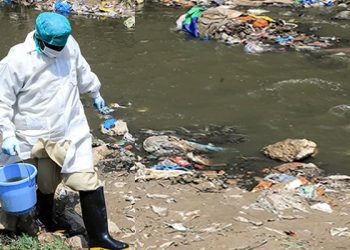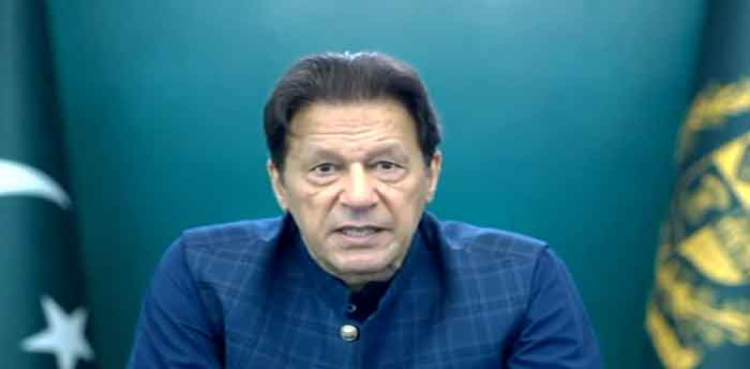A huge tranche of leaked data on offshore companies that is larger in size and scope than the Panama Papers, hit the global headlines Sunday night, laying bare the financial secrets of the global rich and powerful, including Prime Minister Imran Khan’s cabinet members, financiers, retired generals, media owners and businessmen.
The names of more than 700 Pakistanis have been discovered in the data and the majority of them are tax residents in this country. This trove of information has been named Pandora Papers and it adds significantly to what was discovered in the Panama Papers and Paradise Papers. A veritable Pandora’s box of information has been opened, releasing unending trouble and woes for those named.
The Pandora Papers have unmasked the fortunes of more than 330 public officials in 90 countries. Included among them are 35 current and former leaders of different countries. The king of Jordan, the rulers of Qatar and Dubai, presidents of Ukraine, Kenya and Ecuador, the prime ministers of the Czech Republic and Lebanon, and former British prime minister Tony Blair, all appear in the secret files.
For Pakistan, the files pose a big test to the accountability credentials of Prime Minister Imran Khan, who had found the Panama Papers a “God-sent” opportunity to burnish his credentials as an anti-corruption warrior. The names of some of his key team members and financiers have now surfaced in the Pandora Papers.
Included among them are Minister for Finance & Revenue Shaukat Fayyaz Tarin, Minister for Water Resources Chaudhry Moonis Elahi and Elahi’s predecessor Faisal Vawda, President of the National Bank of Pakistan Arif Usmani, PM’s ambassador at large for Foreign Investment Ali Jehangir Siddiqui, Managing Director of the National Investment Trust Adnan Afridi, among others.
The family of Minister for Industries Khusro Bakhtyar and the son of Waqar Masood, the PM’s Special Assistant who recently resigned, have also surfaced in the Pandora Papers controversy.
The founder of the fallen equity firm Abraaj, Arif Masood Naqvi, Senior Minister of Punjab Abdul Aleem Khan and business tycoon Tariq Shafi are named in the data. From the Opposition, Ishaq Dar’s son and Sharjeel Memon have surfaced in the Pandora Papers.
New leak provides more insight than Panama Papers
The documents were leaked to the Washington-based International Consortium of Investigative Journalists (ICIJ) which for nearly two years led an investigation collaborating with more than 600 journalists in 117 countries. This is the biggest journalism partnership in history, which involved 150 media organizations. For the Panama Papers, almost 400 journalists from 80 countries participated in the investigation. The News was the only ICIJ partner from Pakistan on both occasions. The Pandora Papers comprise 11.9 million documents whereas the Panama Papers had 11.5 million.
This new leak has uncovered the finances of more leaders and public officials than did the Panama Papers and provides more than twice the information about the ownership of offshore companies. In total, the new leaks uncover the real owners of more than 29,000 offshore companies from more than 200 countries with the largest contingents from Russia, UK, Argentina, China and Brazil. The highest number of companies linked with world leaders and other public officials were registered in the British Virgin Islands.
While the US government has been condemning poor countries for providing sanctuaries to dirty money, the Pandora Papers reveal for the first time that the US has become an increasingly attractive destination for hidden wealth.
It is the world’s second-largest tax haven with an estimated worth of $300 billion assets in just one state, South Dakota. In 16 different states of the US, as many as 206 trusts were registered and South Dakota has the largest representation in the data with 81 trusts.
Why are offshore companies controversial?
The files reveal secret offshore holdings of more than 130 billionaires from 45 countries. In 2021, according to Forbes magazine, 100 of these billionaires had a collective fortune of more than $600 billion.
Having offshore companies do business is legal so long as they are declared to tax authorities and to company regulators like the Securities and Exchange Commission of Pakistan (SECP). Businesspersons say they need such entities to conduct their international financial affairs.
However, such practices have come under criticism because this facility is often used to avoid taxes, transfer profits from countries where it is earned to shell companies that exist only on paper in low-tax jurisdictions. The Pandora Papers discovered scores of examples where business units were sold in Pakistan but received payments abroad in bank accounts opened in the name of offshore companies.
Naveed Mughees Sheikh, the owner of Imperial Sugar Mills, followed that path. He didn’t offer his comments when contacted. Bashir Dawood, also mentioned in the Pandora Papers, has a documented case with the FBR, which made the biggest recovery in its history from him in the past.
In other cases, commodities were imported to Pakistan, raising the import bill, and profit was kept abroad. Ahsan Latif, son-in-law of former chairman NAB, Lt-Gen (retd) Khalid Maqbool did so when he imported LPG from Russia in 2009, the Pandora Papers reveal. Ahsan too didn’t offer any comment when approached.
The Pandora Papers also reveal how the criminal proceeds of the fake degree operation of a Pakistani company, Axact, were being remitted by Shoiab Sheikh through bank accounts he opened in the name of a company in the British Virgin Islands.
Asif Hafeez, apparently a gold trader presently under arrest in the UK on charges of heroin smuggling, purchased three properties in London through an offshore company, which has now surfaced in the Pandora Papers.
Having such companies is more controversial for public figures, keeping in view the power they hold, as it could potentially be misused for making money through illicit means. That money could subsequently be stashed abroad as it has on many occasions. This doesn’t happen in every case, but the abuse of shell companies has become rampant.
Media owners, retired generals and businesspersons
More than 700 Pakistanis who are tax-residents in the country or do business abroad have been found in the data covering the duration between 1996 and 2020. Other than the political figures mentioned above, the Pandora Papers have discovered the offshore companies and assets of media owners, retired generals and businesspersons.
Publishers of Jang Group Mir Shakil-ur-Rahman, the Dawn Group’s Hameed Haroon, the Express Group’s Sultan Lakhani and Pakistan Today’s late Arif Nizami have been found holding one offshore company each. Gourmet Pakistan’s owners, who also run a news channel, GNN, have an offshore company whose director is Gourmet’s business executive.
In a first, retired generals and their children have also figured in the Pandora Papers. The former military secretary of Gen (retd) Pervez Musharraf, Lt Gen (retd) Shafatullah Shah owns an expensive apartment in London through an offshore company which is in the names of his wife and son.
Former DG (Counter-Terrorism) of the ISI, Maj Gen (retd) Nusrat Naeem got a company registered soon after his retirement in 2009. The son of Lt Gen (retd) Afzal Muzaffar held an offshore company that was used for a business in the UAE.
Afzal Muzaffar was implicated in a case related to making an illegal investment of Rs4.3 billion in the stock market while being the DG NLC, which caused a loss of Rs1.8 billion.
The wife of former defence production secretary, Lt Gen. (retd) Tanvir Tahir is a shareholder of an offshore company. The sister of Lt Gen (retd) Ali Quli Khan bought properties in the UK through an offshore company. She made this purchase through the fortune she inherited from her deceased father, Lt Gen (retd) Habibullah Khattak.
Former chief of the air staff Air Chief Marshal Abbas Khattak’s two sons also own an offshore company.


















































